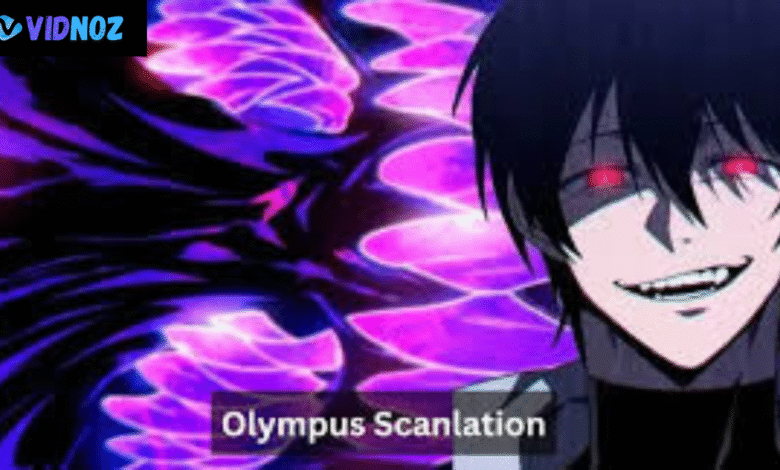Olympus Scanlation: Inside the World of Premier Manga Scanlation Groups

olympus scanlation In the ever-growing global fandom of manga, scanlation groups play a crucial role in bringing untranslated works to eager readers around the world. Among these groups, has risen as a standout name, known for its dedication to quality and timely releases. This article explores who Olympus Scanlation is, the process behind their work, the titles they have popularized, and the legal and ethical debates surrounding scanlation. Whether you’re a casual manga reader or a passionate fan, understanding the impact of Olympus Scanlation helps illuminate an essential part of manga culture today.
Introduction to Olympus Scanlation
Olympus Scanlation is a dedicated fan-driven group that specializes in translating and distributing manga titles for audiences who do not have official access due to language barriers or regional restrictions. Scanlation, a blend of “scan” and “translation,” refers to the fan-based effort to scan raw manga pages, translate the dialogue, and typeset the text into the images for non-Japanese readers. These groups act as a bridge, connecting international fans to stories that might otherwise remain inaccessible.
The importance of groups like Olympus Scanlation lies in their passion and commitment to manga culture. For many readers outside Japan, official releases can be slow or unavailable. Scanlation groups fill this gap, allowing fans to enjoy manga as close to its release date as possible. has built a reputation not only for its fast releases but also for its high-quality translations and clean, professional typesetting that rival official editions. This has made them a trusted source among manga enthusiasts worldwide.
The rise of scanlation communities coincides with the internet’s expansion and the democratization of digital publishing tools. Olympus Scanlation embodies this shift, harnessing technology and fan enthusiasm to nurture a global manga culture that thrives beyond language limits. Their presence reflects how passionate readers can collaborate to keep manga accessible and alive across different cultures.
History and Origins of Olympus Scanlation
Olympus Scanlation was founded by a group of manga enthusiasts united by their love for Japanese comics and their desire to share them with a wider audience. The origins of the group trace back to the early 2010s when fan translation communities began to flourish online. These early members brought varied skills—translation, editing, graphic design—that combined to form a balanced and efficient team.
The founding motivation of Olympus Scanlation was to offer quality and consistency. Many scanlation groups operate sporadically or lack the resources to maintain translation accuracy and visual clarity. Olympus aimed to set a higher standard, ensuring fans received faithful translations that preserved the original’s nuance and tone, as well as clean, readable layouts.
Over the years, Olympus Scanlation has completed numerous significant projects, earning recognition for tackling both popular mainstream manga and niche titles. Their milestones include breaking into harder-to-find genres and supporting lesser-known authors by providing their works with international exposure. This dedication has helped the group grow steadily, expanding its team and improving its workflow with each new project.
However, journey has not been without challenges. Like many fan groups, they have faced issues such as raw material scarcity, copyright enforcement, and balancing speed with quality. Despite these obstacles, their continued success underscores their resilience and dedication to the manga community.
The Scanlation Process: Behind the Scenes at Olympus
Understanding Olympus Scanlation’s work means appreciating the complex and collaborative process that transforms raw manga into polished, readable chapters. It starts with sourcing raw scans—high-quality, unedited manga pages—usually obtained from Japanese releases. These raw images are the foundation of the entire project.
Once raw scans are secured, the translation team works meticulously to convert the Japanese text into English. This step involves not only literal translation but also cultural localization to ensure the dialogue resonates with international readers. Translators must carefully balance staying true to the original meaning while adapting expressions and idioms for clarity.
After translation, the proofreading and editing stage ensures grammatical accuracy and consistency in terminology. This layer of quality control is critical to maintaining professional standards and readability. Concurrently, typesetters replace the original Japanese text with the English version, carefully fitting text bubbles without disrupting the artwork. This requires both technical skill and artistic sensitivity.
Finally, the cleaned and typeset pages undergo a final review before release. team typically includes cleaners who remove Japanese text and dust from the images, enhancing visual clarity. This entire workflow demands coordination, time, and talent, reflecting the group’s commitment to delivering manga that rivals official publications in quality.
Popular Titles and Releases by Olympus Scanlation
Olympus Scanlation has worked on a wide range of manga series, from well-known shonen hits to obscure indie works. Their selection process often involves community requests, market trends, and personal passion for particular stories. This variety helps them cater to diverse tastes within the global manga community.
Some of their most popular titles have become fan favorites because of the group’s dedication to faithful and engaging translations. These releases attract loyal followers who eagerly await each new chapter and participate actively in forums and social media discussions. The community engagement around Olympus Scanlation’s work strengthens the bond between fans and the manga itself.
Moreover, Olympus Scanlation has earned a reputation for taking on exclusive projects—titles that are not officially licensed outside Japan or that face delays in official English releases. By doing so, they give exposure to fresh content and support emerging manga artists indirectly through international fan interest.
This careful curation and quality assurance contribute to standing as a reliable source for manga enthusiasts worldwide, fostering a vibrant, connected fanbase that values their contributions highly.
Legal and Ethical Considerations of Scanlation
While scanlation groups like Olympus Scanlation provide an invaluable service to manga fans, their work exists in a complicated legal and ethical space. Most scanlations operate without explicit permission from copyright holders, which technically makes them unauthorized reproductions.
The legality of scanlation varies by country, but generally, it infringes on intellectual property rights. Copyright holders and publishers have taken action against some groups to protect their business interests. Olympus Scanlation, aware of these risks, often navigates this landscape carefully by avoiding monetization and emphasizing their fan-driven, non-commercial nature.
Ethically, many fans argue that scanlation promotes manga by expanding its audience and encouraging official purchases once accessible. typically advocates for this perspective, encouraging readers to support official releases when possible. They see their work as complementary rather than a replacement for official channels.
This debate continues within the manga community and the industry itself, highlighting the tension between fan passion and legal frameworks. Olympus Scanlation’s approach reflects a balance of respect for creators alongside a desire to keep manga accessible worldwide.
How to Support Olympus Scanlation and the Scanlation Community
Supporting scanlation groups while respecting legal boundaries is a challenge for many manga fans. Olympus Scanlation recommends that fans use their releases primarily as a way to discover new series and then purchase official volumes or digital copies when available. This practice helps sustain the manga industry financially.
Fans can also support Olympus Scanlation by engaging respectfully with their online platforms, sharing feedback, and participating in discussions to help build a positive community atmosphere. Avoiding piracy sites and ensuring that scanlations are accessed from trustworthy sources helps protect both readers and the group.
Furthermore, fans can contribute by volunteering skills if recruiting or by supporting official manga publishers through subscriptions, merchandise, and events. These combined efforts help preserve the manga ecosystem, allowing both official and fan-driven projects to coexist.
Looking ahead, Olympus Scanlation envisions continued collaboration with the global manga community, adapting to new technologies and evolving legal landscapes to keep the spirit of manga fandom alive and thriving.
Conclusion
Olympus Scanlation represents more than just a manga translation group—they embody a global fandom’s passion for storytelling, art, and culture. Through careful, dedicated work, they have created a space where manga transcends language barriers and reaches eager readers worldwide. While scanlation exists within legal grey zones, emphasis on quality, respect, and community highlights the positive impact such groups can have.
As manga continues to gain international popularity, balancing fan enthusiasm with respect for creators is essential. Fans are encouraged to enjoy scanlations responsibly and support official releases to ensure the industry’s longevity. journey underscores how fan-driven projects and official markets can coexist to enrich the manga experience for everyone.
Also Read: ecryptobit.com tokens

